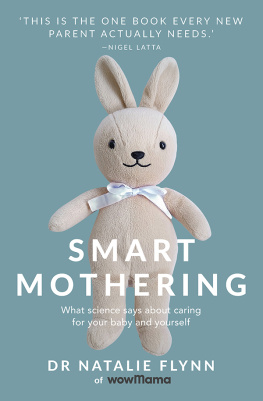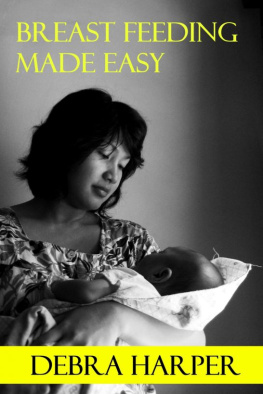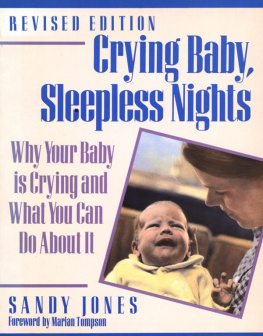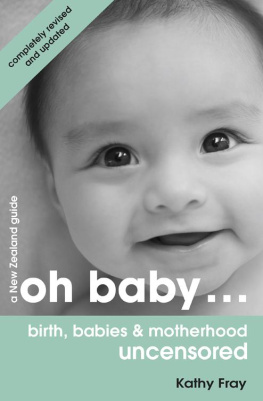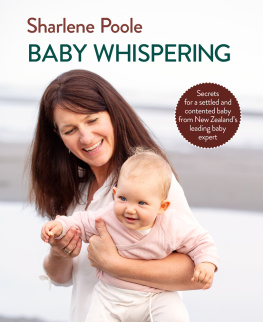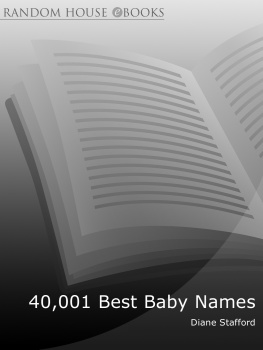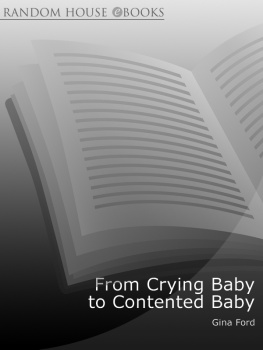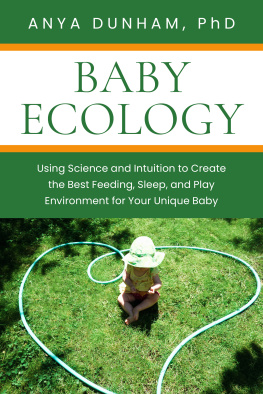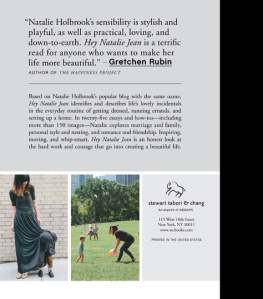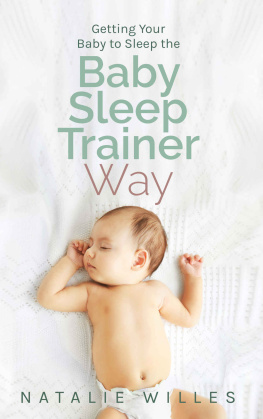Smart Mothering translates research, clinical psychology, theory and experience into practical advice and simple strategies. It is a great resource that people can look to during the early years of parenting. Natalie presents a view that supports the emotional well-being of the mother, simultaneously with that of her infant and their relationship.
Dr Tanya Wright, child and adolescent psychiatrist
For Elijah, Maya and Leon
The information contained in this book is provided for general purposes only. If you or your baby have any health problems you should seek the advice of a medical practitioner.
First published in 2019
Copyright Natalie Flynn, 2019
All rights reserved. No part of this book may be reproduced or transmitted in any form or by any means, electronic or mechanical, including photocopying, recording or by any information storage and retrieval system, without prior permission in writing from the publisher.
Allen & Unwin
Level 3, 228 Queen Street
Auckland 1010, New Zealand
Phone: (64 9) 377 3800
Email:
Web: www.allenandunwin.co.nz
83 Alexander Street
Crows Nest NSW 2065, Australia
Phone: (61 2) 8425 0100
A catalogue record for this book is available from the National Library of New Zealand.
ISBN 978 1 98854 708 4
eBook ISBN 978 1 76087 083 6
Cover design by Cat Taylor
Cover image by Ohhlanla/Shutterstock.com
Illustrations by Megan van Staden
CONTENTS
So, what set me off on this adventure to discover what is really known about caring for babies? Its hard to pin it to any one event. Of course, my own experience of mothering has given me a passion for the area, but my drive to examine the advice that todays mothers are bombarded with has more to do with my work as a clinical psychologist than with my personal life. My interest in providing mothers with fact-based parenting choices has only grown during my years specialising in maternal health.
It is only fair that I tell you right at the outset that things were relatively easy for me as a mother of young babies. I was and am in a stable relationship with a partner who takes parenting seriously. We had enough financial security that I was able to take time off from paid work when I had young babies. I had little trouble breastfeeding, and I found it rewarding. I knew how to watch out for signs of depression or anxiety, and I knew what to do if I was feeling exhausted or overwhelmed.
I was by no means a perfect new mothereven by my own standards. I do not think screen time is good for very young children; when a parent looks at screens while actively caring for their baby, I believe it is poor modelling. So did I ever watch TV while feeding my baby late at night? You bet I didand I ate chocolate at the same time. But did I beat myself up over it? No, I didnt. I told myself the same thing that I tell my clients: be loving, be calm and look after yourself.
Some of the women I see professionally are having just a little trouble adjusting to new motherhood. Others need more help, especially if they have had some hardships in life or are experiencing emotional health difficulties, such as depression or anxiety. Some women simply need reassurance, or to find clarity in the face of an overload of parenting advice. Most of these women worry about making the right choices for themselves and for their babies, and they often look to me for answers to the following questions (and many more). Can I work and meet my babys emotional needs? Do I have to breastfeed? What about immunisationsare they safe? Will my baby be harmed by a rise in cortisol levels if I introduce controlled crying? Did I damage my baby by having a Caesarean section?
For years I have thought that, much of the time, these mothers are being made to worry unnecessarily. And then, when their worries are perfectly understandable, there are so many conflicting answers.
What I have discovered is very reassuring. When I checked peer-reviewed research and pieced it together for reliable conclusions, I found that a loving, responsive mother has lots of choices about the way she parents. I found there are answers for working mothers, there are answers to screen time, there are answers about babies and crying. There is also tested advice about helping your baby to sleep longer at night without distressand more.
Of course, I was only able to do this research long after those exhausting first few years of a babys life were behind me; my children are now thirteen, eleven and eight years of age. The paradox of informed parenting is that the very years during which you need confirmed information are also the very years you have no time to look for it, even if you do know how to examine the research. You will no doubt look to Google for helpand you are only likely to find more confusion there. You will be bombarded with conflicting advice that claims to be supported by science.
I want this book to cut through all of that for you. I want you to have what all mothers deserve: informed choice.
What you need to do first with a new baby is look after yourself. If you are worn down, if you have anxiety or depression, how can you do your best for your child? That is why youll find that the section on looking after yourself comes ahead of the section on looking after your baby in this book. Your family is in this together. Be calm and caring to your baby. Be kind to yourself. Be armed with fact-based parenting information.
Getting to the bottom of what the research says was time-consuming. It isnt possible to simply rely on any one studyor even on a lot of studies. Its important to read what all of the well carried-out studies have to say, then to read what the key researchers in each area have to say about one anothers work. In each area, I found there were one or two masterminds who were well respected and immersed in the field. It is necessary to understand their criticisms. It is also necessary to go deep into the discussion and method sections of the research papers, which often reveal outcomes that dont quite match what is said in the nutshell summary given at the start of each study.
This book was a labour of love, and it surprised me over and over again. I hope you will share my enthusiasm for getting to the bottom of things, and enjoy hearing the outcomes of my endeavour.
We live in an age of information. The answer to any question that pops into our heads is, quite literally, at our fingertipsbut, more often than not, theres more than one answer proffered, and it can be quite impossible to discern which is the correct answer. Rather than making things simpler and clearer, our instant access to information often does the opposite. We find ourselves overwhelmed and misinformed. As the adage goes, you can have too much of a good thing, and information is no exception.
Worry about information overload is certainly not a new thing. It has plagued people since long before there were computers and smartphones, and even before there was a printing press. For those who enjoy biblical references, in Ecclesiastes 12:12 Solomon warned that of making many books there is no end, and much study wearies the body. Aeons later, in the year 2000, psychologists Sheena Iyengar and Mark Lepper published a paper titled When choice is demotivating: Can one desire too much of a good thing?. Their work took a closer look at what happens when we are offered an abundance of choices. As part of their research, Iyengar and Lepper conducted a field study in which they set up a tasting stall in a gourmet supermarket. During alternating hours they put either 24 varieties of jam on a table, or 6 varieties of jam. The study found that while far more customers were attracted to the stall when it had 24 varieties, they were ten times more likely to buy a jar of jam when the table had fewer choices. Only 3 per cent of those exposed to 24 choices actually made a purchase. It appears that those encountering more choices had suffered from decision-making paralysis.

